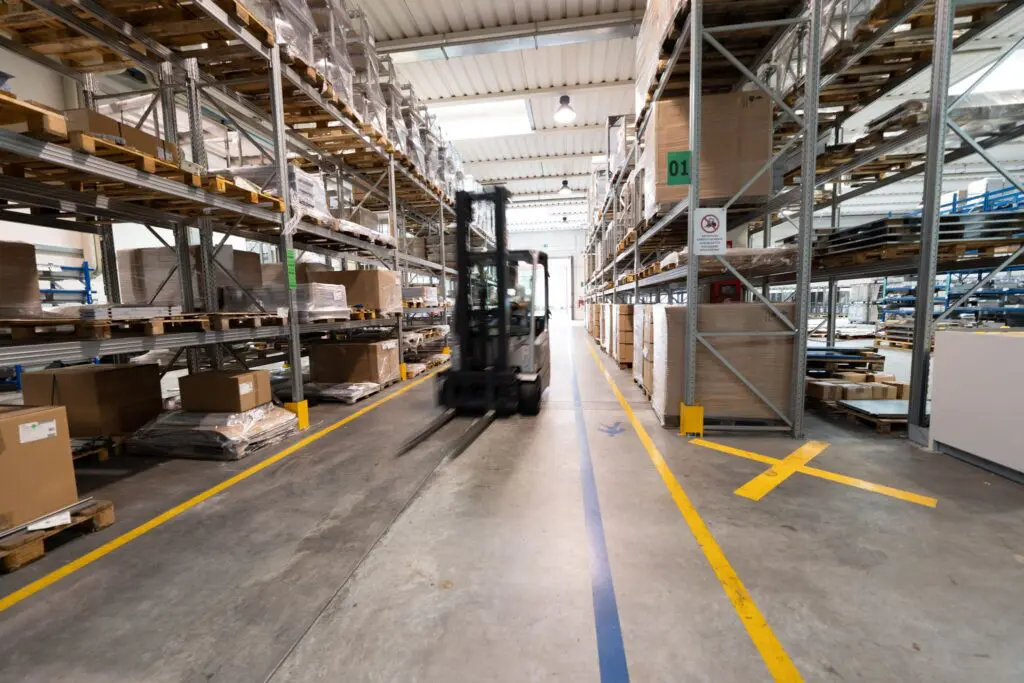A company that controls its supply chain can effectively manage procurement, production, and logistics, expand its reach into new markets, diversify, and therefore grow and become more structured. The goal is to optimize and increase the efficiency of operations, respond more confidently to market fluctuations, build know-how, and put that expertise at the service of clients in the same industry who are geographically distant.
At Metal’s, we have chosen exactly this approach, which is essential for companies operating across multiple sectors and producing new products for different markets. At the same time, it is complex, dynamic, and focused on our client’s objectives. This approach, stage by stage, involves various professional roles that must be coordinated to achieve truly effective and customized management.
In this article, we take a closer look at what the supply chain is, why it is important to have control over it, the approach adopted by Metal’s, and - through real-world examples - the advantages that come from having full oversight of the entire supply chain.
Understanding the supply chain
The supply chain is the process that encompasses all the stages required to ensure that a product created by the supplier reaches the end customer. Planning, sourcing raw materials, production, logistics, distribution: each stage corresponds to a link in the chain and is interconnected with the others. For this reason, precise and timely coordination is necessary to oversee all stages, ensuring that products are available at the right time, in the right quantities, and at the right location.
In an industrial context in particular, supply chain control refers to all the coordination activities adopted by a company to manage and optimize the stages of the production chain, from material sourcing to the delivery of the finished product. These steps can vary across sectors, and the activities involved include:
- Technical consulting
- design
- Selection and purchase of raw materials
- Supplier coordination
- Production
- Logistics
- Shipping
The goal of this planning is to provide the client with a high-quality, customized product by enhancing every phase of the process. To achieve this and increase competitiveness in the market, multiple specialized figures are involved within the company’s ecosystem, from the technical office to product quality control managers.
Key players in the supply chain
Managing the supply chain means coordinating a series of activities that, as mentioned earlier, involve multiple roles and sectors:
- Suppliers, who provide the necessary raw materials
- Manufacturers, who transform the materials into finished products
- Logistics managers, who handle transportation and storage
- Distributors, who take care of delivering the products to customers
- And finally, the customer, who participates in product design and refinement
At Metal’s, all department heads and staff - from the technical and commercial office to production, quality control, and shipping - are actively involved. The challenge is to coordinate all parties and individual processes to deliver products in the exact quantities required, with the desired specifications, and within the agreed timeframe.
The stages of the supply chain
Let’s take a closer look at the main stages of the supply chain.
Planning
Planning involves analyzing market needs and scheduling the resources required to meet them. In fact, understanding the market in which a company operates and the client’s specific requirements makes it possible to better plan the procurement of raw materials and inventory levels, control (or even reduce) costs, and prevent waste or interruptions in the production chain. At Metal’s, we always start with a thorough analysis of the customer’s needs and objectives in order to define the timing and methods needed to achieve them.
Procurement
Procurement refers to the acquisition of raw materials, starting with the identification of trusted suppliers. Choosing the right partners is essential to maintain control over timelines, costs, and production quality. At Metal’s, for example, we ensure that our suppliers meet the same high standards we set for ourselves: precision, discipline, exceptional quality, and punctuality.
Production
Production includes all the stages that transform raw materials into finished products, following the agreed quality standards and delivery schedules. For this reason, it’s crucial to rely on skilled personnel and cutting-edge—often automated—machinery, whose operations are carefully coordinated to optimize performance in fair and safe working conditions.
Logistics and Shipping
Logistics covers the management of transport and storage to ensure products reach customers safely and on time. This stage includes several activities: from packaging to shipping. Every step is designed to speed up operations while fully complying with regulations, selecting the most efficient transport method, and managing customs documentation. This aspect is particularly important at Metal’s, as we ship our products and semi-finished goods throughout Europe and worldwide.
What are the three key activities of the chain: the links of the supply chain
Within the supply chain, three major stages can be identified, also known as the “links” of the supply chain, which ensure a complete and continuous flow. These are procurement, production, and distribution. To achieve maximum benefits, each stage requires proactive and timely actions, making the right decisions and interpreting the different needs.
1. Procurement
The procurement link aims to source the raw materials necessary to meet specific business needs (ensuring quality and the right cost). This involves three key aspects: how, where, and when to obtain the raw materials required to produce the product, whether it is a semi-finished product, a component, a complex assembly, or part of a machine.
2. Production
Production is the set of activities required to manufacture the product. This is the phase where raw materials are processed, semi-finished products are assembled, and manual or mechanical interventions are performed, all in accordance with agreed standards. At Metal’s, for example, we place strong emphasis on automation, such as machine part finishing or robotic welding.
3. Distribution
The final link in the supply chain is distribution, which includes all activities necessary to deliver the product requested by the client. Distribution must be carried out safely, efficiently, and in compliance with customs regulations, particularly for shipments outside the EU.
How to organize the supply chain effectively
To make the supply chain a truly effective tool, activities must be organized through clear planning of timelines and methods, based on:
- Analysis of customer and market needs
- Supplier selection
- Logistics planning
- Continuous monitoring of performance and quality
- Integration of improvements and customer feedback to achieve the desired product
From a market diversification perspective, all of this is possible only when a company has the know-how to serve different regions with specific requirements—and when it maintains full control over its supply chain.
The benefits for a company that controls its supply chain
Managing the supply chain effectively ensures that raw materials are available at the right time, reducing downtime and storage costs. Knowing how to manage the supply chain is highly advantageous because it allows a company to:
- optimizing time;
- ensuring maximum performance and smooth production flow;
- enhancing partner and supplier selection (focusing on those committed to sustainability);
- minimizing waste and costs by aligning supply with demand.
Additionally, overseeing and coordinating all supply chain stages helps prevent and quickly resolve potential risks or issues, avoiding production and logistics slowdowns. Resilience is vital in the supply chain, as it allows quick solutions when, for example, a supplier experiences delays or lacks essential components. We demonstrated how we sourced materials and components during a crisis in a dedicated case history.

Supply chain for market diversification: what’s essential today
Speed, flexibility, precision, and efficiency are the key words for companies aiming at market diversification today. To remain competitive and establish a strong presence in new sectors, it is essential to offer high-performance, top-quality products—carefully crafted in every detail, including the stages that follow production. It is also crucial to guarantee customers on-time production by preventing potential risks (for example, in raw material sourcing) and always offering a valid alternative solution. Coordinating relationships with multiple raw material suppliers, providing diversified and precise processing in a short time, testing product quality, and planning logistics are all fundamental activities to stand out and succeed in the market. In addition, a sustainable and responsible supply chain—one that aims to minimize environmental impact in line with the Corporate sustainability due diligence directive (also known as the Supply Chain Act)—is becoming an essential competitive factor.
Therefore, when the supply chain is well-organized, the advantages are significant—for both the company that manages it and its customers. This is precisely why, at Metal’s, we have chosen to oversee the entire supply chain: we act as the single project partner, allowing our clients to focus on their core business while we take care of everything else.
We are able to manage the entire supply chain, offering a comprehensive service that includes: tutta la catena di fornitura offrendo un servizio completo che comprende:
- Technical consulting
- design
- Supplier coordination and raw material purchasing
- Lean production
- Assembly and final testing
Below is an infographic summarizing our approach:

Metal’s approach to supply chain for market diversification
At Metal’s, we serve companies operating in various industrial sectors across Europe and around the world, providing tailor-made solutions designed to meet every expectation and requirement, while streamlining and verticalizing supply chains.
We also manage logistics and handling—storing even large goods in our warehouses—and deliver orders to the client’s facility, providing safe and customized packaging if needed. Regarding shipping, we can deliver orders both in Italy and abroad, handling all bureaucratic (and customs) procedures with maximum efficiency.
This way, our clients can focus on their core business, leaving the coordination of production and logistics to us.

Real cases: what market diversification and supply chain control mean in practice
So far, we have looked at the supply chain and market diversification “on paper.” To fully understand what it really means to manage the supply chain and serve clients worldwide, we present some real cases from Metal’s.
Extremely high quality standards across all markets
Diversifying markets over the years has allowed us to understand the specific characteristics of sectors and regions that are very different from each other, not only in Europe but also in countries that are geographically far apart.
Today, we serve both international and Italian companies in numerous sectors, particularly food processing, packaging, medical, Ho.Re.Ca, and electrical panel production. This vertical integration helps us offer economically and technologically efficient solutions, select the most suitable suppliers, and plan production to meet customer quality standards. For example, thanks to our specialization in the Ho.Re.Ca sector, we now supply braziers to clients in Italy, Europe, and New Zealand. The New Zealand company chose Metal’s because, even after searching for geographically closer suppliers, they had not yet found a solution meeting the high-quality standards they require.
Changing suppliers in an emergency
Managing the supply chain also means acting quickly when necessary. During the pandemic, for example, we helped a major client in the Food Processing sector handle an emergency. A Chinese supplier, responsible for producing a crucial component, suddenly halted deliveries, putting the entire production at risk. At that critical moment, we acted swiftly by activating our network of alternative suppliers and proposing a new solution, fully compatible with the original project. Thanks to Metal’s complete control over the entire logistics flow and supply chain, we were able to source materials and components in an emergency, simplifying the project and reducing costs.
Modular sourcing to reduce costs
Vertical integration and supply chain control offer another advantage: the ability to analyze cost items, identify where reductions are possible, and implement them without compromising quality. When a major international group, specialized in meat packaging machinery, requested an 8% reduction in list prices, it was through a thorough analysis by our technical department and our deep understanding of processes, supply chain, and materials that we achieved the target.
Want to get in touch with us?
At Metal’s, we carefully select the clients we work with - medium to large-sized companies - and support them throughout every stage of the logistics flow: from concept to the creation of stainless steel assemblies, semi-finished products, and machine parts. Would you like to learn more?

